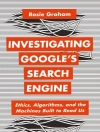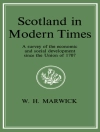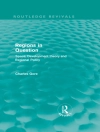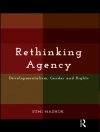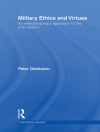Understanding change over time is a central concern for research in sociology, political science, education, geography and related disciplines. It is also an issue which presents significant methodological problems, in response to which different techniques have been developed – for example, time series analysis, multilevel models, log-linear models and event history analysis. Outlining the nature of such techniques, this accessible collection covers: the respective values of cross-sectional and longitudinal data in the analysis of change; the variety of methods available for the analysis of change over time; the types of research objective to which various techniques are suited; the limitations and constraints of individual methods; and the different philosophies which underlie particular approaches.
Spis treści
Introduction – Richard B Davies and Angela Dale
From Cross-Sectional to Longitudinal Analysis – Richard B Davies
Modelling Trends in Multi-Way Tables – Clive Payne, Joan Payne and Anthony Heath
The Analysis of Pooled Cross-Sectional Data – John Micklewright
Analyzing Change Over Time Using LISREL – John Bynner
Longitudinal Multilevel Models – Ian Plewis
Event History Analysis – Nancy Tuma
Discrete-Time Mixed Markov Latent Class Models – Rolf Langeheine and Frank van de Pol
Time-Series Techniques for Repeated Cross-Sectional Data – David Sanders and Hugh Ward
O autorze
he Vice-Chancellor is the University′s chief executive and principal academic and administrative officer.Professor Richard B Davies was appointed Vice-Chancellor of Swansea University in 2003. He studied Engineering at Cambridge, Transportation and Traffic Planning at Birmingham University, and obtained a Ph D in Geography/Statistics at Bristol University.His first academic appointment was at Bristol University. Subsequently, he was a lecturer and then senior lecturer in the department of City and Regional Planning at the University of Wales Institute of Science and Technology, now Cardiff University.He was appointed to a Chair in Applied Statistics at Lancaster University in 1989. He was successively director of this five star department, Dean of an Applied Sciences faculty, and then Pro-Vice-Chancellor at Lancaster.As an applied statistician, Professor Davies has worked across an unusually wide range of disciplines including Medicine, Metallurgy, and Social Science. He has about one hundred publications in academic journals and books and has worked extensively in industry with companies including Rolls Royce, GEC, and Nuclear Electric. He has also undertaken contract research for government ministries and led the statistical analyses for the Lord Woolf Enquiry into the civil justice system.Professor Davies has served on the Higher Education Funding Council for Wales (HEFCW) and its Audit and Risk Committee, and on the Welsh Assembly Government′s Higher Education and Economic Development Task and Finish Group.He was founding chair of the Northwest Universities Association Research and Strategic Development Committee and a member of the Northwest Science Council ′core group′ (the group which managed the business for the Science Council established by the Northwest Development Agency).


